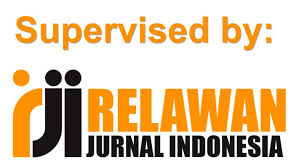Trend Aplikasi Azar Pada Generasi Z Sebagai Sarana Komunikasi Dalam Menjalin Pertemanan Dunia Maya Di Kabanjahe
DOI:
https://doi.org/10.37092/khabar.v7i1.1157Keywords:
Communication media, Azar application, Mediamorphosis, GenerationZAbstract
This study aims to provide an in-depth understanding of the trend of using the Azar application among Generation Z as a means of communication to make friends in Kabanjahe. This study focuses on the communication behavior of Generation Z when interacting through the Azar application and User actions in the Azar application, as well as the utilization and usefulness of the application. The method used in this study is qualitative with a descriptive approach, with four informants for the study, this study uses a purposive sampling technique in determining informants and data collection techniques obtained through in-depth interviews, observations, documentation, and previous journal articles. The theory used in this study is the mediamorphosis theory. The results of the study show that communication behavior in the Azar application involves interaction and communicating casually and users often make video calls, joke, and use emoticons when chatting, as well as other features. In addition, users also show interest in meeting friends in the real world, even though there is a sense of distrust and anxiety when meeting. Informants also create self-identities in the Azar application. The benefits of this application include improving communication, opening new insights, finding a partner, and entertainment.
Downloads
Downloads
Published
How to Cite
Issue
Section
License
Copyright (c) 2025 Ika Sartika, Ahmad Sampurna

This work is licensed under a Creative Commons Attribution-NonCommercial-ShareAlike 4.0 International License.









